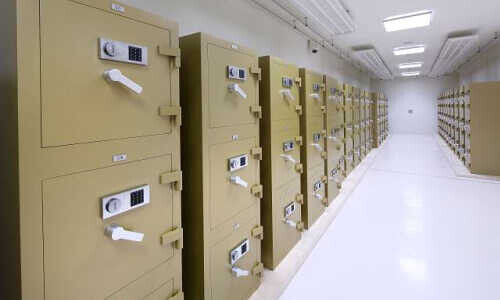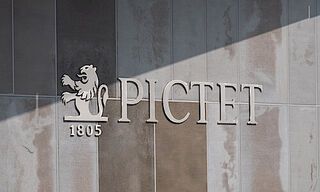Liechtenstein's almost surreptitiously adds bullion to the scope of money laundering regulation – to the unexpected relief of vaults, clients, and banks.
In April, Liechtenstein quietly closed a loophole in its due diligence requirements by including third-party bullion assets. Although the step barely registered in Swiss finance circles, Liechtenstein's precious metals dealers, vaults, and duty-free warehouses now look to the future more optimistically.
The step is seen as a way of adapting the country's anti-money laundering laws to European standards despite the additional due diligence required to store gold, silver and other precious metals under Liechtenstein Financial Market Authority's (FMA) supervision.
Fully Regulated for the First Time
The new rules are an opportunity for the different precious metals players, and banks, as both Switzerland and Liechtenstein now have fully regulated markets for gold and precious metals for the first time.
Service providers such as OZL, better known as Liechtenstein's Fort Knox, are counting on rising revenues as result, Axel Paul Diegelmann (pictured below) told with finews.asia.

He assumes the demand for precious metals storage will increase strongly.
«A fully regulated environment makes life easier, particularly for institutional investors, as it provides full transparency and reliability», says the precious metals expert.
The Swiss-Liechtenstein Advantage
Diegelmann commands a Swiss-Liechtenstein «gold empire» that includes trade and storage. Besides the OLZ, the group also owns the Trisuna warehouse and Rheingold Edelmetall in Triesen. Precious metals trading is located in Appenzell's Teufen (Switzerland). According to Diegelmann, with the stronger regulation, Swiss-Liechtenstein has a meaningful advantage worldwide.
The expanded scope is also positive for banks. Previously, internal compliance supervision and transaction monitoring of precious metals trades stopped whenever third-party storage providers came into play.
Gold Always «Bankable»
Gold and precious metals were taken out of financial market circulation as soon as they disappeared into a Liechtenstein vault. Now that the duty-free warehouses and vaults are regulated as stringently as banks, gold will remain «bankable» within both jurisdictions, meaning it can be put back into circulation at any time.
And, indeed, Swiss banks have been losing market share in recent years to gold and precious metals traders, and online sellers.
Germans Favor Liechtenstein
That has something to do with a growing lack of confidence in the financial and monetary system but it also has compliance reasons given the processing of vault and security deposit boxes has become increasingly difficult.
It is not known how many thousands of tons of gold and silver are in Liechtenstein's vaults. Germans strongly favor the principality and it has become a serious competitor to customs-free warehouses.
The security of the Liechtenstein «Fort Knox» is not even key. Clients are simply trying to avoid an asset from falling into government hands, something that would not be guaranteed in Swiss bank vaults in extremis.
Competitive Advantage
Duty-free warehouses are anonymous and it is simply not known how much gold or other physical assets are there. Estimates are in the hundreds of billions in customs-free warehouses worldwide.
«We see a clear competitive advantage compared with unregulated entities,» says Diegelmann. Until now business growth rates have been up 20 percent.
«Monetary policy worldwide is driving this development.» He forecasts continued growth in precious metals prices in coming years, driving business for regulated storage and trading.



























